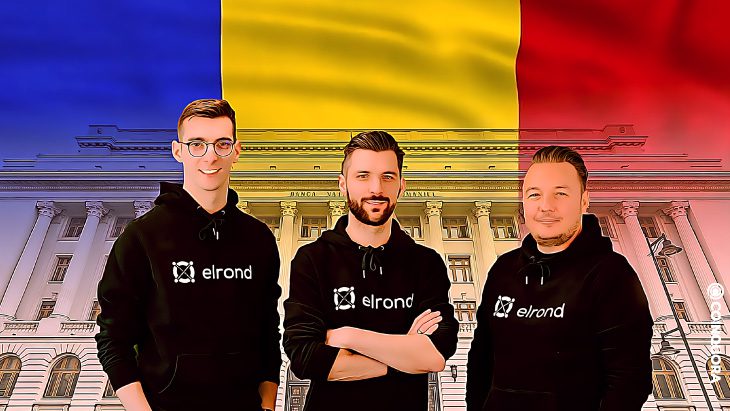- National Bank of Romania has approved Elrond’s acquisition of Twispay.
- Elrond will move to be a bridge between traditional finance and the crypto space.
- The involved parties were in discussion since October 2021.
Earlier today, the National Bank of Romania announced that it had approved Elrond’s acquisition of Twispay. Elrond is a blockchain firm focused on distributed applications. And, it has officially received the approval to purchase the electronic money institution Capital Financial Services, which acts under the brand Twispay.
Twispay is a financial institution licensed to provide payment services and to issue electronic money following the legislation in force and with the authorization received from the National Bank of Romania.
Through this move, Elrond will be able to establish itself as a bridge between traditional finance and the crypto space. Since the announcement in October 2021, the two parties have been engaged in conversations with the National Bank of Romania. After several rounds of constructive discussions, the National Bank of Romania officially decided in favor of Elrond acquiring Twispay.
Beniamin Mincu, Co-founder & CEO of Elrond, said:
This landmark decision from the Romanian Central Bank opens the door for EU citizens, and soon for everyone everywhere, to significantly benefit from value flowing with near-instant settlement times, at 100x fewer costs, with full transparency, and higher reliability.
Other than the entitlement to issue electronic money, e-money institutions are also eligible to provide payments services under the second Payment Services Directive (PSD2). Furthermore, the EU Commission’s proposed European Regulation on Markets in Crypto-assets specifies that licensed e-money institutions will be allowed to issue stablecoins which can be offered to the public in the Union or admitted to trading on a trading platform for crypto-assets.
Elrond is a blockchain architecture that seeks to offer extremely fast transaction speeds by using sharding. It was co-founded in 2017 by brothers Beniamin and Lucian Mincu, and Lucian Todea as a solution to the problem of blockchain scalability.


